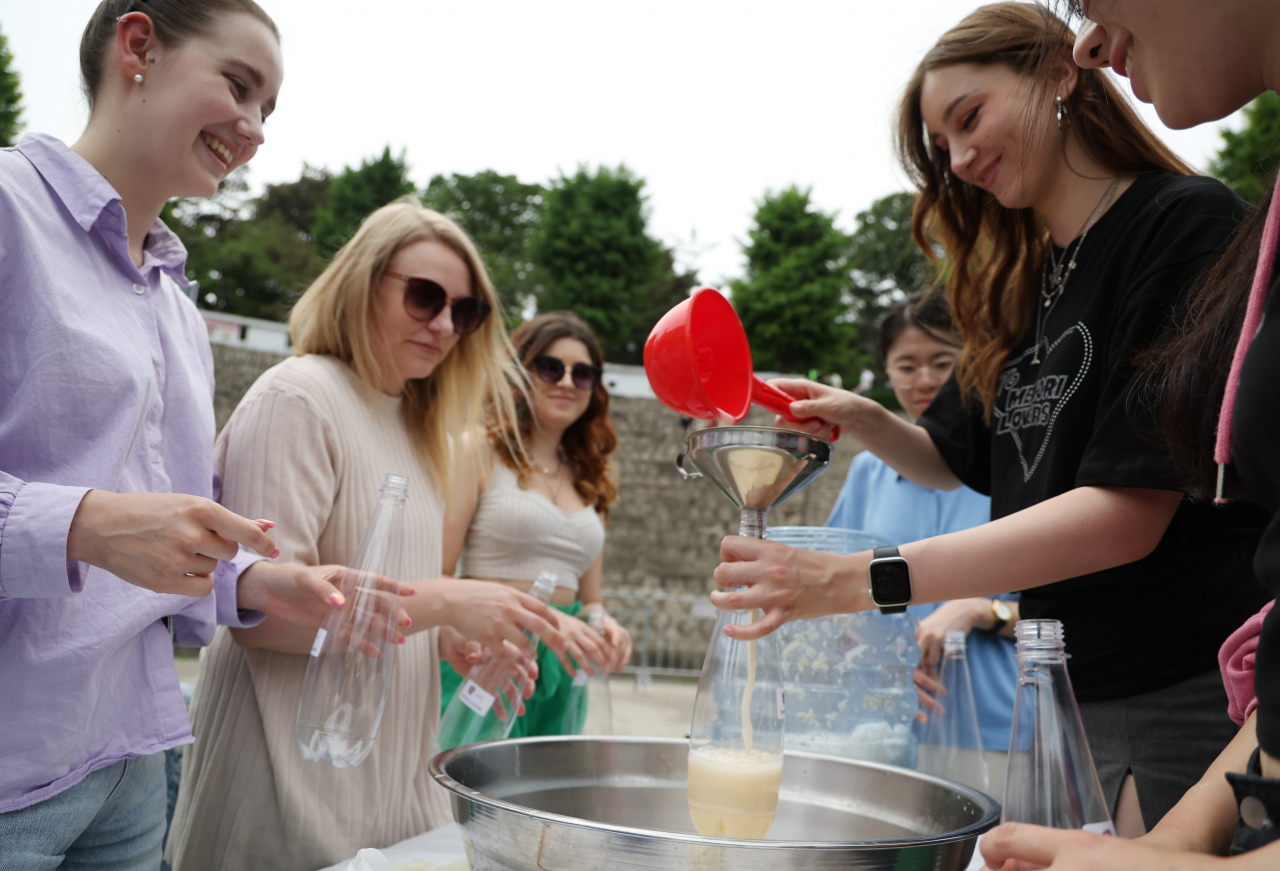 |
Foreign students take part in a traditional Korean wine-making event during a campus festival at Kyung Hee University in Seoul on Thursday. (Yonhap) |
Foreign residents of Seoul were happier than than their Korean neighbors, a poll conducted by Seoul City showed Thursday.
The “happiness index” of foreign residents in Seoul (7.07) was higher than that of the city’s Korean residents (6.72), according to the survey of some 20,000 families, 5,000 citizens and 2,500 foreign residents of Seoul conducted from September through October last year.
Over half of the foreign respondents (56.3 percent) said they wish to continue to live in Seoul, and 57.1 percent said they would recommend living in Seoul to others.
The share of foreign residents who experienced discrimination fell 15 percentage points from 53.1 percent in 2020 to 38.1 percent in 2022.
Some 27.9 percent of them said they felt discriminated at work, followed by 19.7 percent at shops, restaurants or banks; 17.4 percent said they felt discriminated by the landlords or realtors; and 16.6 percent at government offices.
The difficulties faced by foreign and Korean residents in Seoul were similar. The biggest hardship was “raising and educating children,” followed by “obtaining an opportunity to work” and “housing,” Seoul City said.
The annual “Seoul Survey” also showed that couples raising preschool children in the city were happier than singles or childless couples, while housework was still mainly the wives’ job.
The number of households with preschool children in Seoul dropped 25.4 percent in four years from 335,420 in 2017 to 250,230 in 2021, The happiness index of parents with preschool children stood at 7.03, higher than that of singles (6.96) and childless couples (6.84).
Those with preschool kids showed the lowest “loneliness index” of 3.66, compared to childless couples (3.78) and singles (3.84).
Singles, however, showed the highest level of satisfaction with their leisurely pursuits (5.9), followed by childless couples (5.74) and parents of preschool children (5.63).
Among families with preschool kids, the share of those with two children shrank from 40.7 percent in 2018 to 39.2 percent in 2021; and those with three from 7.5 percent to 6.9 percent in the same period.
Of single income families, 78.8 percent said the wife was mostly responsible for the housework.
Among double income households, 51.2 percent said the wife was mostly responsible and the husband helped a little; and 9.5 percent said the wife was entirely responsible.
As for the cause of stress, 60.4 percent of the dads in single income households picked “too much work” as their main factor of stress, while 59.1 percent of dads in double income families chose “interpersonal relationships at work.”
Moms in both single (81.7 percent) and double income families (57.4 percent) picked “taking care of the family and household chores” as their top cause of stress.






![[Today’s K-pop] Blackpink’s Jennie, Lisa invited to Coachella as solo acts](http://res.heraldm.com/phpwas/restmb_idxmake.php?idx=644&simg=/content/image/2024/11/21/20241121050099_0.jpg)
